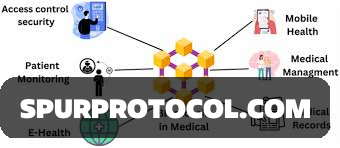Healthcare Meets Blockchain
Healthcare Meets Blockchain: Revolutionizing Data Privacy, Accessibility, and Efficiency
Go Back
🕒 1:32 AM
📅 Jan 26, 2025
✍️ By Loner6538
Healthcare Meets Blockchain: Revolutionizing Data Privacy, Accessibility, and Efficiency
Go Back
🕒 1:32 AM
📅 Jan 26, 2025
✍️ By Loner6538
In the digital age, healthcare systems around the world face a myriad of challenges, from managing patient data to ensuring transparency, privacy, and accessibility. Blockchain technology, originally designed to underpin cryptocurrencies like Bitcoin, is now emerging as a transformative solution for the healthcare industry. By leveraging its decentralized, secure, and transparent nature, blockchain is revolutionizing how healthcare operates. Here’s how blockchain is reshaping the healthcare landscape and why its adoption is crucial.
Patient data is one of the most valuable and sensitive assets in healthcare. Traditional systems store data in centralized databases, making them susceptible to breaches and cyberattacks. Blockchain offers a solution by:
For example, if a patient’s medical records are stored on a blockchain, they can grant temporary access to healthcare providers while maintaining full control over their data.
Healthcare systems often struggle with data fragmentation. Patient records are scattered across multiple providers, making it difficult to share and access crucial information. Blockchain enables:
This seamless data sharing improves coordination between healthcare providers, leading to better patient outcomes.
The pharmaceutical industry faces challenges like counterfeit drugs and inefficiencies in the supply chain. Blockchain addresses these issues by:
For instance, blockchain can help verify the origin and authenticity of vaccines, ensuring they reach patients safely.
Clinical trials generate vast amounts of data, often scattered and difficult to verify. Blockchain brings transparency and efficiency by:
This increased trust and transparency can lead to faster drug development and improved collaboration in the medical research community.
Blockchain enables patients to take control of their health data through decentralized identity solutions. This empowers patients by:
This shift in power from institutions to individuals is a significant step towards patient-centric care.
Healthcare systems are burdened by high administrative costs and inefficiencies. Blockchain simplifies processes such as:
While the potential of blockchain in healthcare is immense, its adoption faces challenges, including:
Despite these challenges, the benefits of blockchain far outweigh the hurdles. With continued innovation and collaboration, blockchain can become a cornerstone of modern healthcare.
Blockchain technology has the potential to address some of the most pressing issues in healthcare, from data security to interoperability and cost reduction. By adopting blockchain, the healthcare industry can move towards a more transparent, efficient, and patient-centric model. As blockchain continues to evolve, its integration into healthcare will undoubtedly transform the way we manage and deliver care—ensuring a healthier future for all.